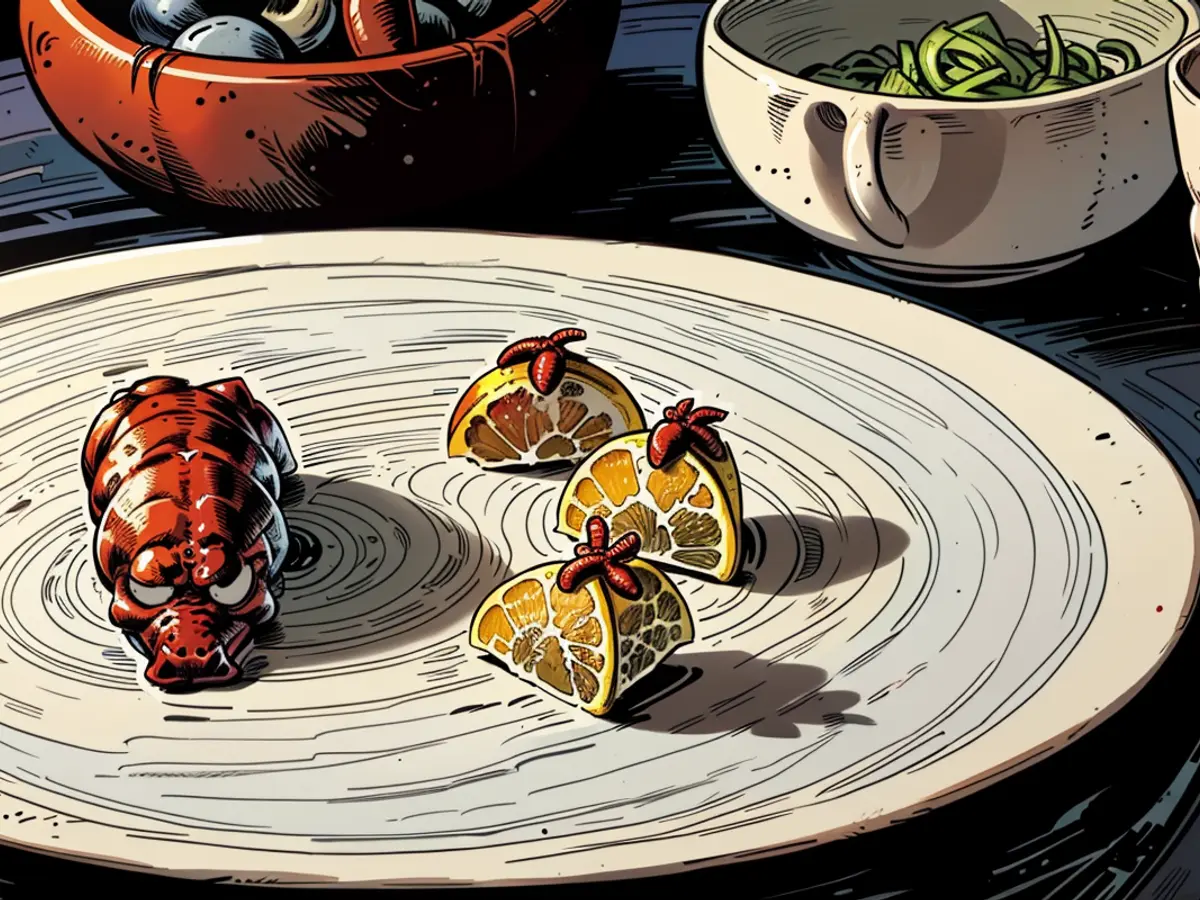The lobster is awesome
Timber-framed houses, quiet little towns, vineyards everywhere - Alsace is a jewel in eastern France. The region is also awakening from its Sleeping Beauty slumber in terms of its cuisine - old legends and new star chefs are fulfilling gourmet dreams.
It always looks so peaceful in photos as if the Ill river were gently flowing in its bed. But when you actually sit on the terrace of the Auberge de l'Ill, it becomes clear: The river flows quite fast and there's no better metaphor here - even in the beautiful old timber-framed house by the riverbank, nothing is peaceful. From the dining room, the river flows, outside stands the spreading willow tree, and inside the large kitchen brigade with white toques is cooking.
It's spring in Alsace - five years since Marc Haeberlin lost his third star. He still remembers exactly how the kitchen phone rang - on the other end was Gwendal Poullenec, the new chef of the Michelin Guide.
"After the call, I informed my team. They all cried. The sommelier was sitting in the corner with his head in his hands. It was terrible, it was brutal," Marc Haeberlin recalls. A commis, who had learned from him years ago, said ironically, "I've never worked in a two-star restaurant before." But today it seems he's not so unhappy about it. Few people talk about all those restaurants that retain the three stars - and the loss of the third macaron in the Auberge is still a topic - and that brings customers.
"I'm saying this without pride or arrogance: But ever since then, I've been recognized on the street. A few days ago, a cashier in the supermarket said, 'We're behind you, Monsieur Haeberlin, you're bringing the star back.' I felt like a top athlete."
And then he tells how Marc Veyrat, who also lost a star that year, called and laughed, "Well, it's like being relegated from the first league. We're playing in the second now, but the stadium is full every night."
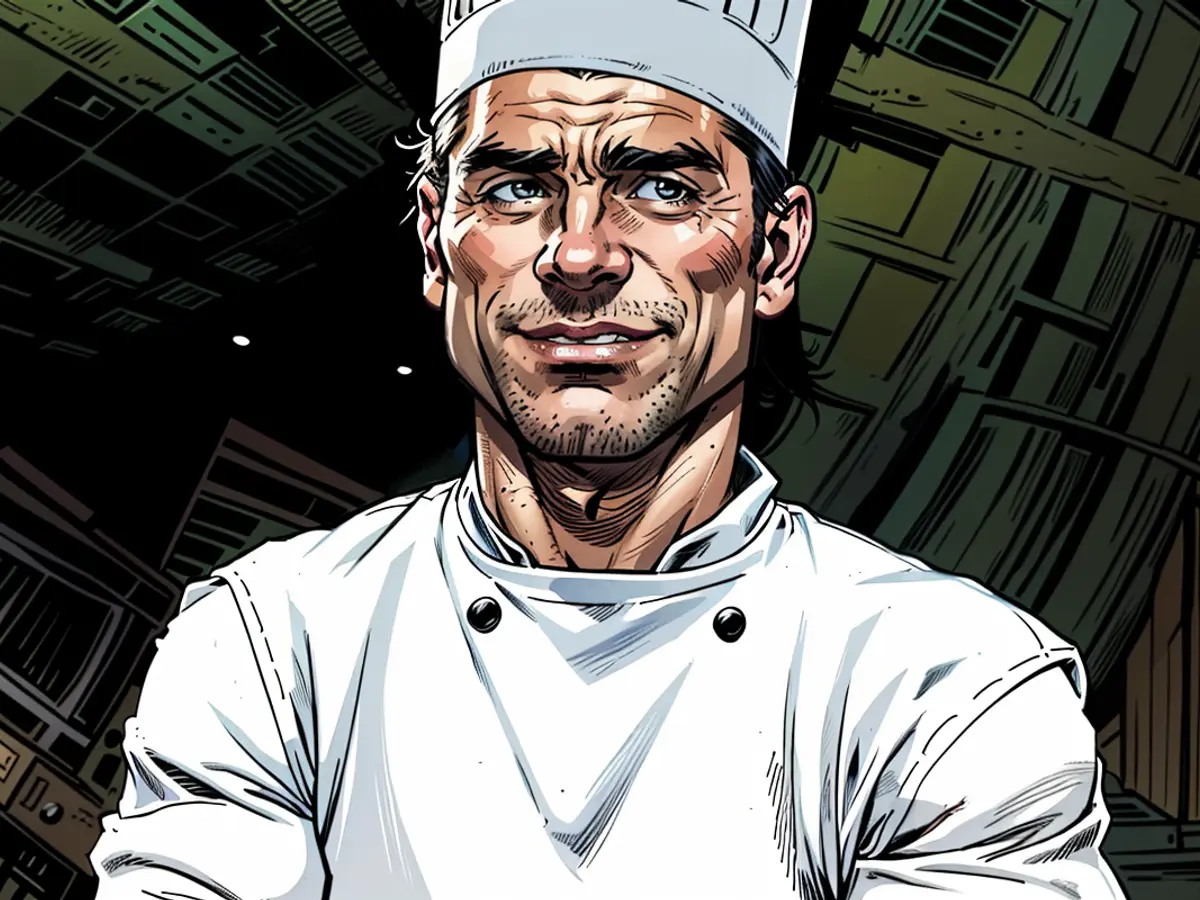
Grand Kitchen Opera at Full Tables
During my visit a few days ago, I can confirm: Yes, it's true. Every table was occupied and there are many in the three large halls, where a special piece is performed from Wednesday to Sunday: The grand stage of Haute Cuisine, as it existed fifty years ago, the great kitchen opera - calorie bombs included. The audience is refined, cultivated, and wealthy, there is much laughter and chatter, the visit to this culinary legend is still an experience.
The demotion was like free advertising for the restaurant and its neighboring Mountain Hotel with beautiful Spa near Colmar. Haeberlin's future, at least, seems secure. But he wonders every day if haute cuisine is really following the right path. "Look at all the plates that are being awarded, they look very beautiful - but do they taste good?" The question hangs in the air.
I hear it all the time: Regional and sustainable, but I still can't harvest everything in my own garden, there would only be red beets and pumpkins. My guests don't just want regional rainbow trout - they also want a stone bass and a lobster - and they get it.
Moreover, unlike in today's fine dining, there isn't just a fixed menu, but all dishes are also à la carte orderable. "I am a chef and not a dictator," Marc Haeberlin laughs.
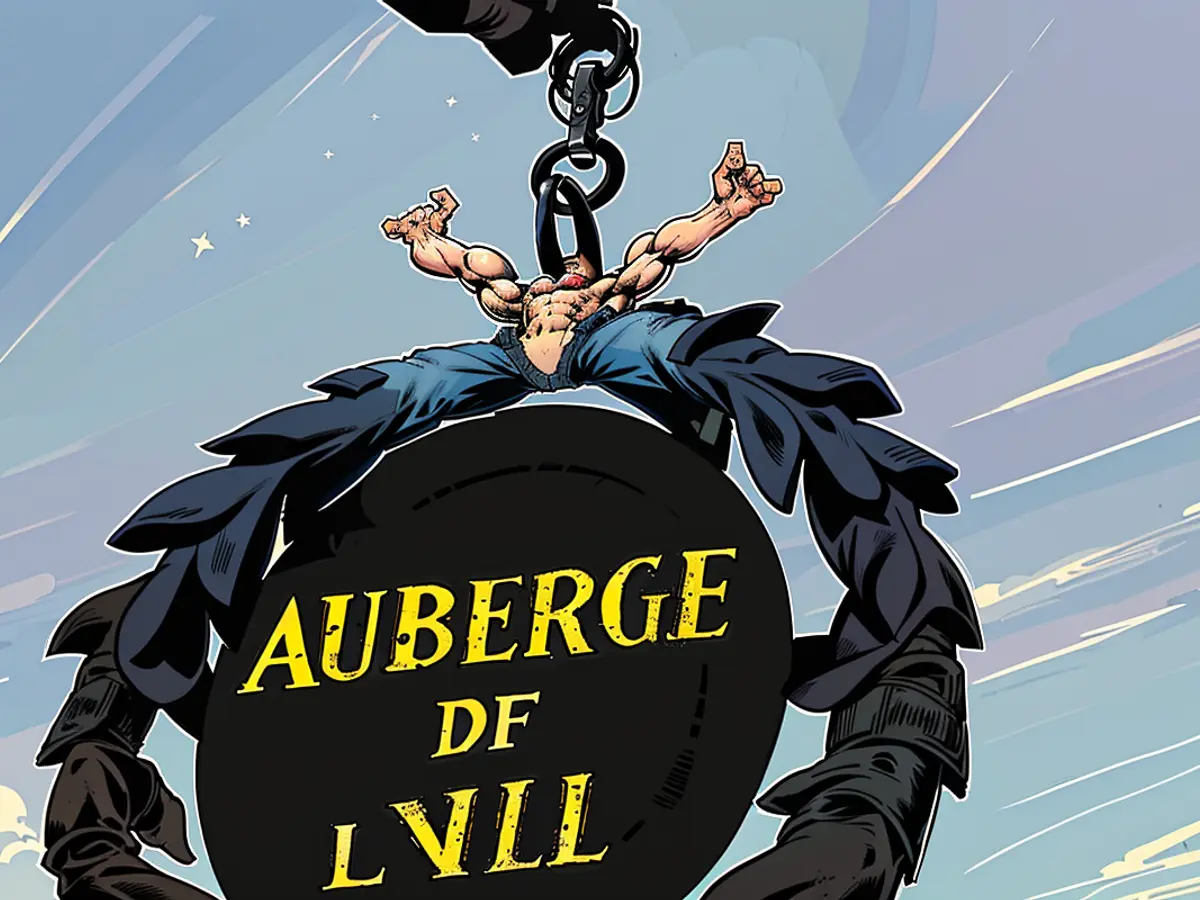
Breast or Chops? Or better both?
A culinary master he is to this day. The appetizers impress: A wolf fish tartar with Osetra caviar and a bisque of spiders is served perfectly fresh and aromatically strong. The red mullet is done perfectly and attractively. Haeberlin serves it with coarsely cut cucumbers and tomatoes, not decorated, but it makes culinary sense - the guest feels like they're at the Mediterranean.
The main courses are heartier, traditional: Like the tournedos of the pigeon, marinated with cabbage, truffles, and goose liver. The master can make sauces masterfully - as he should. The veal is served in two portions, first the breast, sliced at the table, then the grilled chops - and again, the jus is a revelation of power and depth.
It's old French high culture, exactly like the silver-glass cheese cart with an opulence that unfortunately has become rare - Haeberlin can never do without it. Exactly like the poached peach, named after his father - a delight with plenty of Zabaglione calories.
Whether he will win back the third star with this powerful kitchen from the Michelin Guide and its philosophy, which has moved away from the great gourmet temples and sets its sights on small, intimate rooms and decorated menus, is questionable. For fans of rich haute cuisine, a visit here is still a dream.
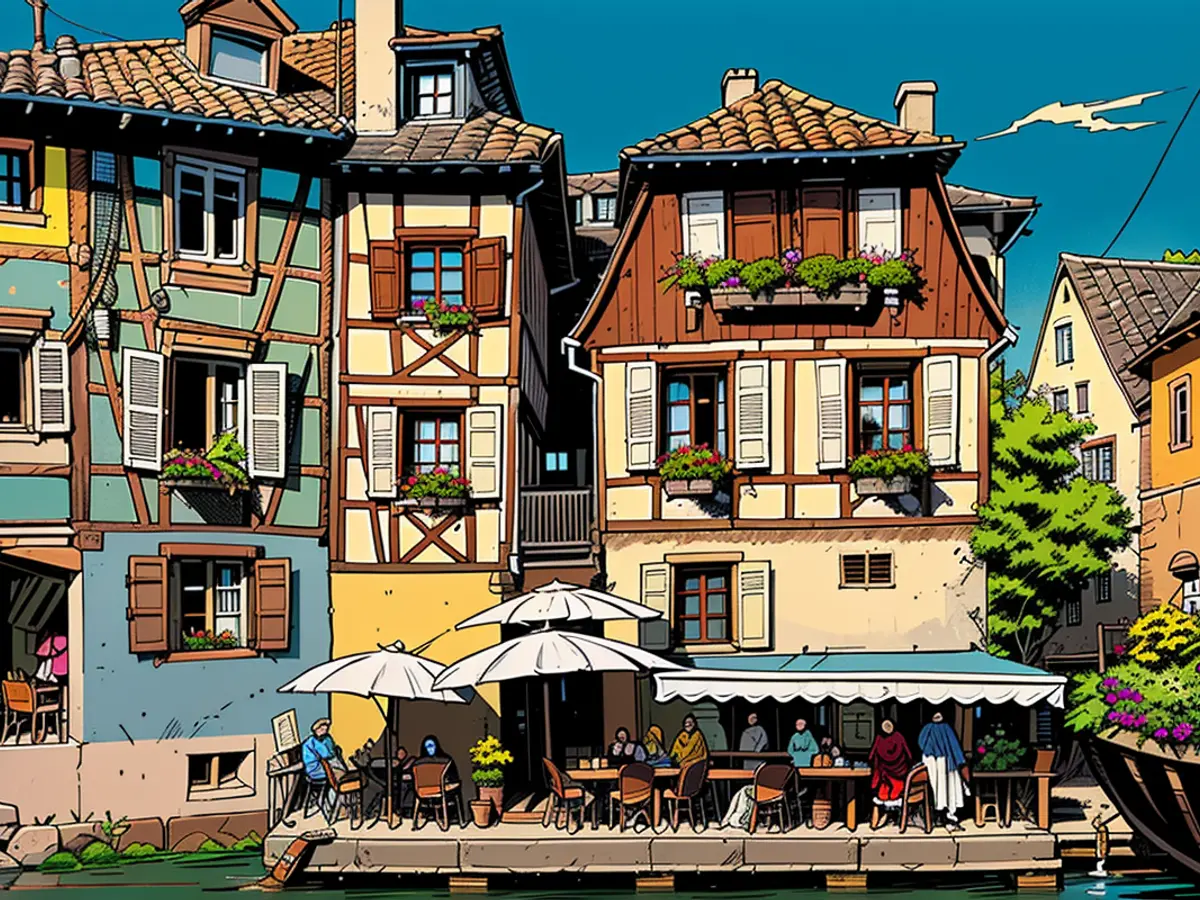
The Alsace knows how to do it in the glass
Yes, Alsace has woken up, not only in the kitchen, but also on the vineyards. What has changed in the region, after all those difficult years when the local grapes fought for significance, but all too often offered mass instead of class? But the young, well-traveled winemakers seem to be using the advantages of their terroir, avoiding the mistakes of their fathers, no longer adding sugar and reading, when the grapes are really ripe and not when the calendar says: Every local Crémant on this journey stood up well to Champagne in terms of carbonation as well as freshness and depth. And the Rieslings? World-class. Whether the mixed harvest of Marcel Deiss or the mineral Grand Crus of Domaine Agape - Alsace tastes good in the glass.
So the wine lists are thankfully Alsace-heavy, even at Jean-Yves Schillinger's, who leads the gourmet temple in Colmar, namely. But Schillinger doesn't focus on local products, the three-star chef has come back and brought the aromas of his life with him to this sleepy timber-framed town.
What a life story this man has: His father, the famous chef Jean, who died in the fire of his own restaurant when boys from Colmar set it on fire. The son, who then fled to New York and cooked in the famous Eleven Madison Park. And then returned to Colmar - first to Bord'Eau, then to the new JY's, named after his initials.
His wife Kathia leads the direction in the glass hall, which is as modern as Schilling's creations. Asia plays an important role, butter and cream has the chef replaced with coconut milk long ago. His numerous creations stand out, such as the tuna, which he serves as Tatar, as a delicate grilled Tataki, and the fish's belly almost raw, marinated in wasabi and sesame oil, topped with Foie Gras foam - a punch.
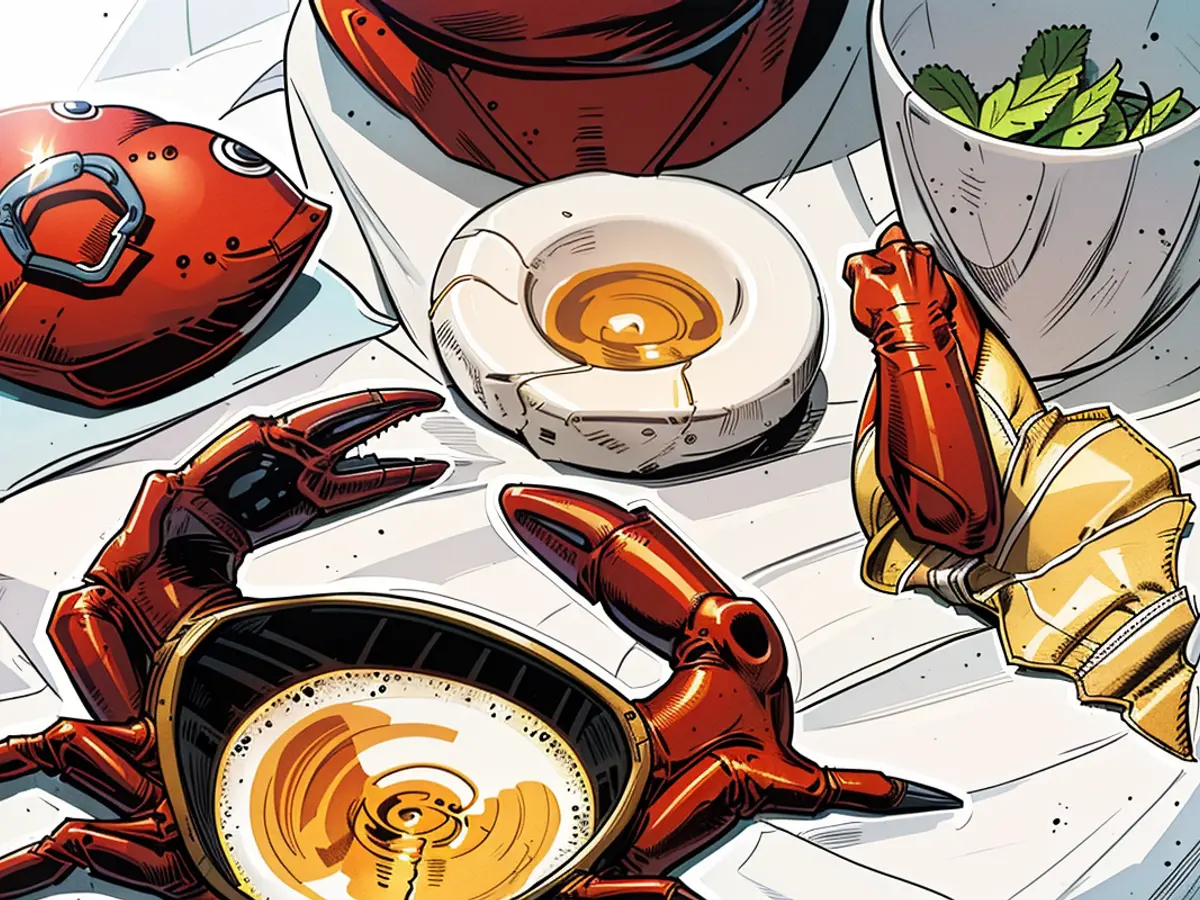
His signature dish: The best lobster I have ever eaten. The hostess brings a press coffee pot to the table, with which normal people make coffee. But here, at the bottom is the broth of the lobster shell, over it the extracted lobster with vegetables: Carrots, ginger, garlic, leeks and countless herbs. Then the pressure cooker is extinguished and the broth rises, cooking the lobster in front of the guest in its own juice. Next, the bouillon is served, with lobster ravioli, followed by a phenomenal spring role with the claw meat. And then, as a second course, the lobster on herb noodles - completely pure, completely delicate, yet so full of power, it leaves you speechless - this lobster is truly not in vain.
Once again, we find a dessert cart with the petits fours (Anm.d.Red.: for those not so Francophile - small cakes could also be said) here, the grandeur of Alsace seems to have a method, so it appears. And the love for indulgence.
- The region's gastronomy is not just revolving around old legends, modern chefs are also playing a significant role in fulfilling gourmet dreams, as shown in the Auberge de l'Ill's kitchen where traditional French dishes are being prepared with a modern twist.
- Alsace is not only famous for its beautiful vineyards and timber-framed houses, but also for its rich culinary scene, with many restaurants offering delicious dishes and a variety of wines, such as the Alsatian Rieslings, which are world-class.
- After losing his third star, Marc Haeberlin's restaurant saw an increase in visitors, with some even calling him a "top athlete" due to the attention he received. He serves a range of dishes, including fish and seafood, and is also known for his love for the classic silver-glass cheese cart and poached peach dessert.
